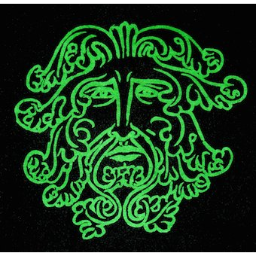One of the consequences of the Philip Cross affair (well documented here and in at least three subsequent posts) is the extent to which it will destroy any vestige of trust in Wikipedia as a sometimes reliable source for people like me.
When Wikipedia first started in 2001 it was using the Wiki collaborative editing concept pioneered in the mid 90s. It seemed at the time like a good and fresh idea utilising an idea from Aristotle that a collective judgement but a large group of people may be better or more accurate than that of a single expert. (later popularised by a book called “Wisdom of Crowds”)
For a brief while back then I had an account on Wikipedia and did some edits to articles that I knew something about – only very few, and I don’t think I ever started a new article because even then Wikipedia editing was getting a bit ‘professionalised’ and even cliquey.
Nevertheless the results on the whole seemed pretty good and a welcome alternative to the ‘official’ narratives previously available. We had already learnt by experience during the last quarter of the 20th century to very very sceptical about almost any official or mainstream source of information – well aware that it would be a partisan story told in favour of the powers that be. Oddly at that stage we still more or less trusted the BBC and the Guardian.
The BBC finally fell from grace at the time of the second gulf war, since when it has been reliable as a tightly controlled source of what the establishment want you to know, and more recently has descended into outright lies and propaganda in what seems an increasingly desperate attempt to shore up a failing status quo.
The Gruniad lasted a little longer as a slightly alternate voice, but over the last three years has completely toed the neo-liberal consensus line whilst affecting a faint air of questioning things to keep the pale left in line.
Meanwhile wikipedia was plagued by trolls of all sorts more or less maliciously making changes and having them reverted. Still it seemed that the crowd was still slightly wise – although who the crowd is has become increasingly obscure.
What the exposure of Philip Cross has done is made it clear that for large sections of political (with a small p) content the wikipedia crowd is no longer either wise or a collective.
Whilst this probably only affects a small proportion of the total content, it is that portion that is at the cutting edge of contemporary socio-politcal debate. In this area at least Wikipedia has apparently willingly become hijack by a specific agenda that is totally at odds with my own opinions.
There are many troubling aspects to this well documented by Craig Murray, but for me consequence is that my (hopefully healthy) scepticism now firmly extends to all Wikipedia content.
If you want to find out about the history of wikipedia itself, or the wisdom of crowds, or almost anything else through a google search then probably prominent in the search results will be wikipedia entries. I have been guilty of treating its ubiquity as a signifier of impartial authority – an opinion I must now revise.


Comments powered by CComment